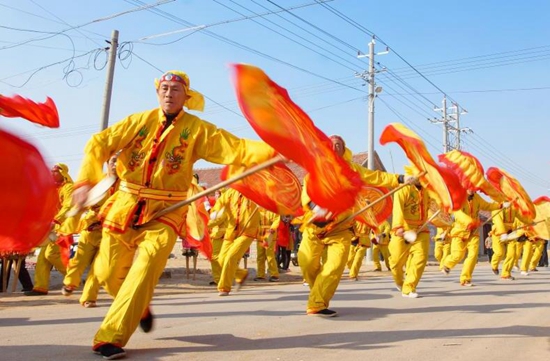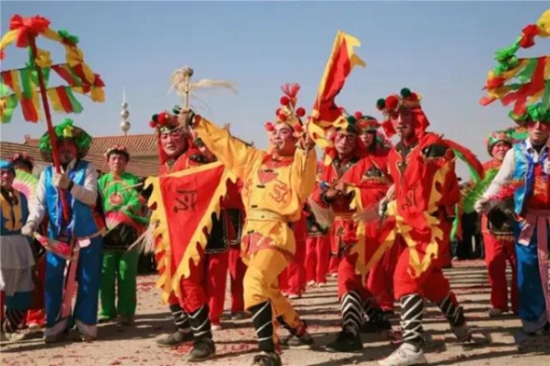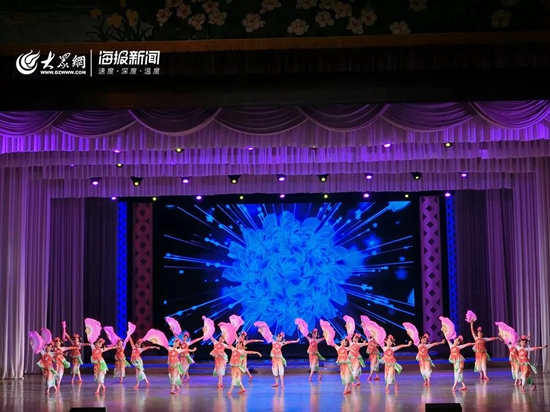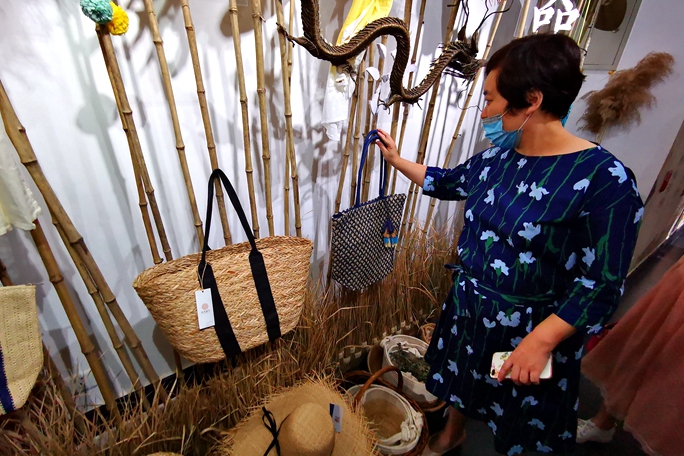Yangko in Shandong
Yangko is a rural Chinese folk dance with a history dating back thousands of years. The folk dance is based on the sacrificial ceremony held when people prayed for a good harvest.
As time passed, the original dance evolved to include various artistic forms, including opera, acrobatics and martial arts, before coming what it is today.
Here are some popular forms of yangko in Shandong.
Guzi yangko dance
The Guzi yangko dance is one of the three main genres of yangko in Shandong. It is popular in Shanghe county in Jinan, the provincial capital and surrounding areas.
The dance, which is accompanied by the sounds of a small drum similar to a tambourine, is a large-scale affair that takes place during festival and holiday celebrations.
 |
|
Villagers perform Guzi yangko in Shanghe county. [Photo/e23.cn] |
The performing team usually comprises over 40 performers who take on different roles.
This dance was listed as a national intangible cultural heritage in 2006.
Haiyang yangko dance
The Haiyang yangko dance is one of the three main genres of yangko in Shandong. It is popular in Haiyang, south of Shandong Peninsula.
Since its rise in the Ming Dynasty (1368-1644), local people have been performing it to celebrate festivals and important occasions.
 |
|
The Haiyang yangko dance, a popular folk dance in Haiyang, Yantai [Photo/WeChat account: ytwlgw] |
Its performance has a distinct local flavor and features grand rhythms to express the strength and resilience of working people.
It was listed as a national intangible cultural heritage in 2006.
Jiaozhou yangko dance
The Jiaozhou yangko dance is one of the three main genres of yangko in Shandong. It is popular in Jiaozhou city, southwest of Shandong Peninsula.
 |
|
Performers stage a Jiaozhou yangko dance. [Photo/dzwww.com] |
The dance reflects the particular charm of the countryside and is valued for its aesthetics.
It was listed as a national intangible cultural heritage in 2006.

 Shandong Culture and Tourism Consumption Season
Shandong Culture and Tourism Consumption Season Culture, tourism sectors pick up in Shandong as epidemic wanes
Culture, tourism sectors pick up in Shandong as epidemic wanes

